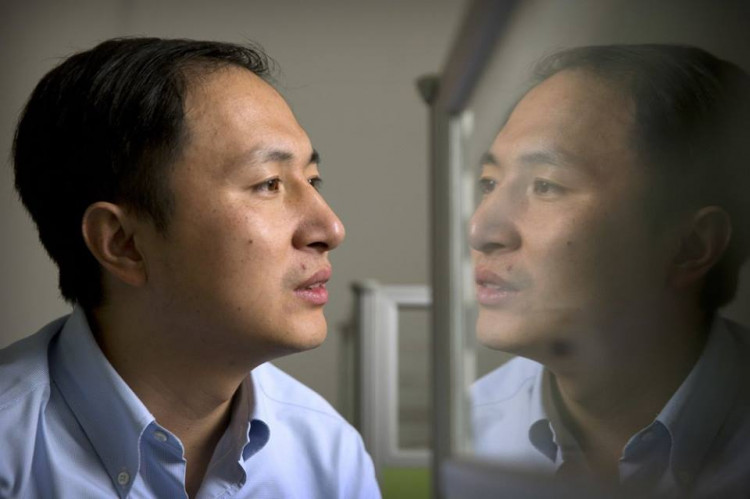He Jiankui, a controversial scientist who claimed to have created first genetically edited babies, dreamt of becoming China's Einstein. Described by his colleagues as "mad genius," He had an early interest in physics and had a small laboratory at home during his high school days.
He, dubbed as "China's Frankenstein," was born in Xinhua county, Hunan province, and grew up in a farming family, the South China Morning Post reported. The scientist graduated at the University of Science and Technology of China with a degree in physics, he was then armed with a state scholarship and flew to the United States to pursue his career.
But when he's already in the US, He realized his dream of becoming Einstein isn't what he wanted as he believed the "golden era of physics was over."
He switched disciplines and studied biophysics at Rice University in Houston, where he initially worked with CRISPR - the gene editing tool used to create the HIV-immune twins. After that, He moved to Stanford University and studied along with Stephen Quake, a professor of bioengineering and applied physics. Quake specializes in DNA sequencing, but not gene editing. He was reportedly inspired by the professor, who developed the first single-molecule DNA sequencing technology.
In 2012, the scientist returned to Shenzhen, where he took up a research post with Southern University of Science and Technology. After three years, He founded two genetics testing companies - Direct Genomics and Vienomics. Both companies claimed to have use gene sequencing for medical purposes.
He, as well as his experiments, also linked to the "Putian Group" of private hospitals, providing services to patients with skin disorders and sexually transmitted diseases in China. He reportedly carried out the trials for gene editing project at Putian's Shenzhen HarMoniCare Women and Children's Hospital. However, the hospital denied any connections to the scientist.
In 2017, He claimed gene editing was still unsafe to be tested on humans. But a day before the summit on human genome editing in Hong Kong, He posted a YouTube video saying a pair of healthy twin sisters (Lulu and Nana) were born in China this November from embryos edited to switch off an HIV-related gene.
However, He hasn't provided any evidence to support his claims, and his research has yet to be published. The scientist has no experience with human experiments, as per the Associated Press. His controversial claims have been criticized by geneticists and scientists from China and overseas for violating ethics. Over 120 Chinese scientists also signed an open letter saying He's experiment was "crazy." His company Direct Genomics also denied any connection with the experiment.






